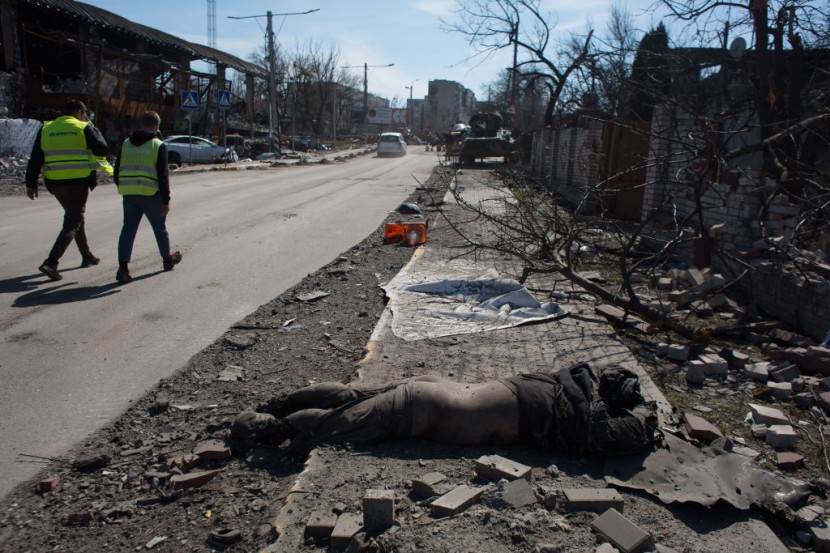
As a result of Russia's invasion in Ukraine, the United Nations General Assembly decided to exclude Russia from the UN Human Rights Council.
It is only the second time a nation has been suspended from the council, after Libya in 2011, with 93 members voting in favor of suspension, 24 voting against it, and 58 abstaining.
Residents in Ukraine's east have been told that they had a final opportunity to evacuate before a big Russian attack in the Donbas area. Russian strikes on the sole railway remained under Kyiv's control and delayed trains evacuating inhabitants.
UN Votes To Suspend Russia From Human Rights Council
The photographs of dead from Bucha and other locations have overshadowed what had been a developing constructive environment, according to Turkey's Foreign Minister Mevlut Cavusoglu, who is hosting talks between Russia and Ukraine.
Leaders of the G7 countries decided to prohibit new investments in important sectors of the Russian economy, particularly the energy sector, as well as expand export prohibitions on specific items and strengthen sanctions against Russian banks and state-owned enterprises. In addition, the US Congress decided to halt regular commercial relations with Moscow and formalize the Russian oil embargo, NDTV reported.
Since Russia's savage invasion of Ukraine on February 24, a total of 1,611 people have been murdered and 2,227 more have been injured, according to the United Nations. The Office of the High Commissioner for Human Rights (OHCHR) said in a statement that "the majority of the civilian casualties recorded were caused by the use of explosive weapons with a wide impact area, such as shelling from heavy artillery and multiple launch rocket systems, as well as missile and airstrikes."
The number of combat casualties is likely to be greater, as reports are still being verified, according to the OHCHR. Mariupol and Volnovakha in the Donetsk area, Izium in the Kharkiv region, Popasna in the Luhansk region, and Borodianka in Ukraine's capital Kyiv are all affected by the case.
EU Nations Approve New Sanctions Against Russia
The two warring nations' severe conflicts have displaced approximately 4.3 million people into neighboring European countries. More than 2.5 million Ukrainians have been allowed to Poland as a result of Russian forces' assault on civilian infrastructure. Hungary has taken in almost 404,000 Ukrainians, Moldova has taken in 401,000, Slovakia has taken in 305,000, and Romania has taken in 663,000. In total, an estimated 7.1 million Ukrainians have been internally displaced as a result of the conflict.
Michelle Bachelet, the UN High Commissioner for Human Rights, voiced alarm over citizens' remains scattered across streets and in improvised mass graves in the Ukrainian town of Bucha, as per Republic World.
Meanwhile, European Union countries agreed on further penalties against Russia on Thursday, including a ban on importing its coal, although the measure will not take effect until mid-August, a month later than originally planned. According to Reuters, Germany, the EU's major importer of Russian coal, advocated for the postponement.
Although the coal boycott is the first time the EU has sanctioned Russia's wealthy energy industry, which many European nations rely on, it stops short of dealing President Vladimir Putin's regime a serious blow. For coal, the EU pays Russia $20 million a day, compared to $850 million for oil and gas. Despite the appalling proof of Russian violence in Ukraine that spurred a fresh round of sanctions, there are no present intentions to ban any of them.
To heat and cool homes, produce power, and keep industry running, EU countries, particularly large economies like Italy and Germany, rely significantly on Russian natural gas. Though coal should be the simplest way to replace Russia's energy supply, the embargo is likely to exacerbate already high inflation, according to USA Today.
Related Article : Russia-Ukraine Crisis: German Intelligence Intercepts Russian Radio Comms on Bucha Massacre
@YouTube
© 2025 HNGN, All rights reserved. Do not reproduce without permission.








